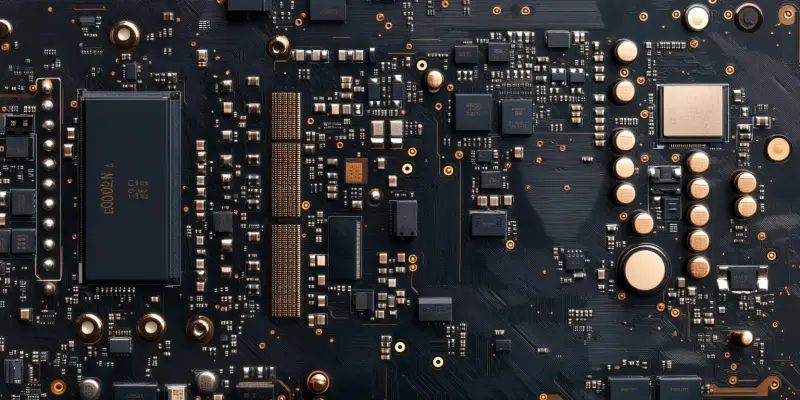The technology world is eagerly awaiting the upcoming CES, where AMD and Intel plan to showcase their latest advancements in mobile CPU technology. These new releases promise to set new benchmarks for performance and efficiency in the high-performance laptop market, highlighting the ongoing competition between the two giants. Both companies aim to capture the attention of tech enthusiasts and professionals alike as they strive to push the boundaries of what’s possible with mobile computing.
AMD’s Ryzen 9 9955HX3D: A Leap in Performance
AMD is set to impress with its new Ryzen 9 9955HX3D “Fire Range,” which will be part of the Ryzen 9000HX series based on the innovative Zen 5 architecture. This new line targets premium high-performance laptops and incorporates the groundbreaking 3D V-Cache technology, which significantly enhances the CPU’s performance capabilities. The Ryzen 9 9955HX3D is expected to feature a remarkable 16 cores and 32 threads, paired with an unprecedented 128 MB of L3 cache. This marks a substantial upgrade from its predecessor, the Ryzen 9 7950HX, and positions AMD’s new offering as a force to be reckoned with in both productivity and gaming sectors, especially when paired with discrete GPUs.
The introduction of the Ryzen 9 9955HX3D indicates AMD’s aggressive push into the premium mobile CPU market. By leveraging cutting-edge technology like 3D V-Cache, AMD aims to deliver superior performance and establish itself as a leader in the next-generation laptop segment. The 3D V-Cache technology enables high-speed data access, which translates to faster processing times and enhanced multitasking capabilities. This innovation not only makes the Ryzen 9 9955HX3D ideal for demanding applications and gaming but also showcases AMD’s commitment to pushing the limits of mobile CPU performance.
Intel’s Arrow Lake-HX Series: Evolution Over Revolution
In contrast to AMD’s headlining advancements, Intel will be introducing its Arrow Lake-HX series, featuring the Core Ultra 7 255HX and Core Ultra 9 275HX models. While these new CPUs are part of Intel’s ongoing efforts to enhance mobile computing performance, reports suggest that they may not deliver substantial improvements compared to their Raptor Lake predecessors. This has led to speculation about whether Intel’s new offerings will match the significant strides made by AMD’s Zen 5 architecture and 3D V-Cache technology.
Despite potential performance limitations, Intel’s Arrow Lake-HX series indicates the company’s ongoing dedication to evolving its mobile CPU lineup. The new models will likely focus on optimizing power efficiency and maintaining competitive performance in a variety of applications. These updates ensure that Intel remains a key player in the mobile computing market, even if they do not represent a revolutionary leap in performance. As the competition intensifies, Intel’s strategy may involve incremental improvements and strategic enhancements to meet consumer demands while preparing for future innovations.
Conclusion: A Competitive Landscape
The tech world is buzzing with excitement for the upcoming CES, where major players AMD and Intel are set to unveil their latest advancements in mobile CPU technology. This year’s releases are anticipated to establish new standards for both performance and efficiency within the high-performance laptop market. The event will spotlight the fierce competition between these two tech giants as they vie for supremacy. Both companies aim to capture the imaginations of tech enthusiasts, industry professionals, and heavy laptop users by pushing the limits of what mobile computing can achieve.
Each company’s new CPUs are expected to be game-changers, promising significant improvements in processing power, battery life, and overall efficiency. Besides, these new chips are designed to support a range of sophisticated applications—from gaming and virtual reality to complex data analysis and AI tasks. The anticipation is tangible as experts and consumers are eager to see who will lead the next wave of innovation. Both AMD and Intel are pulling out all the stops to prove their technological prowess at CES, with breakthroughs that could redefine mobile computing.

